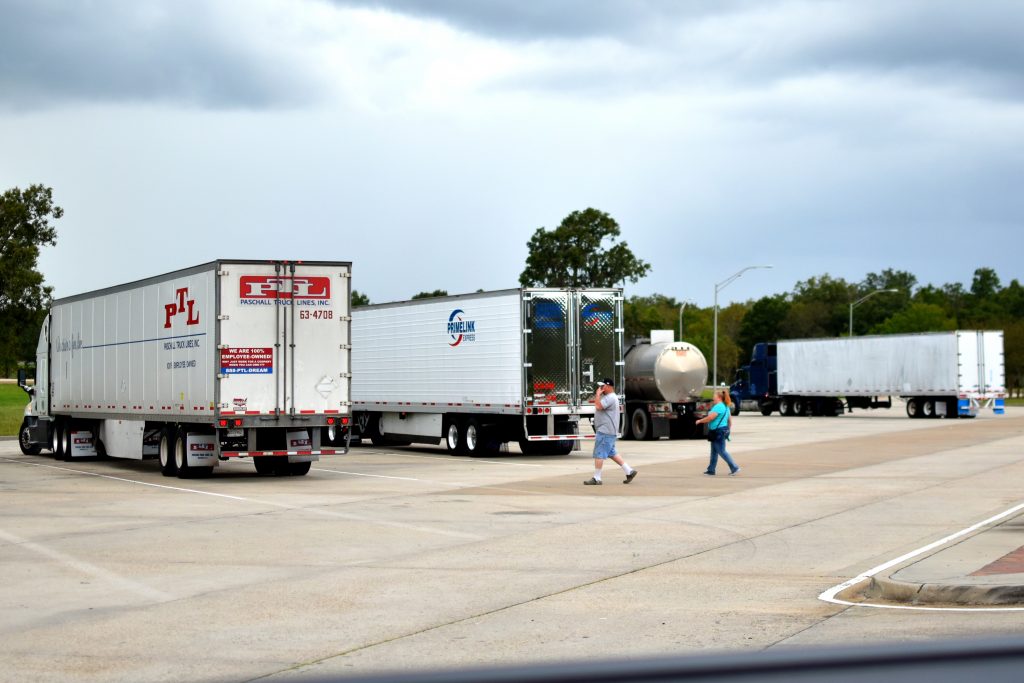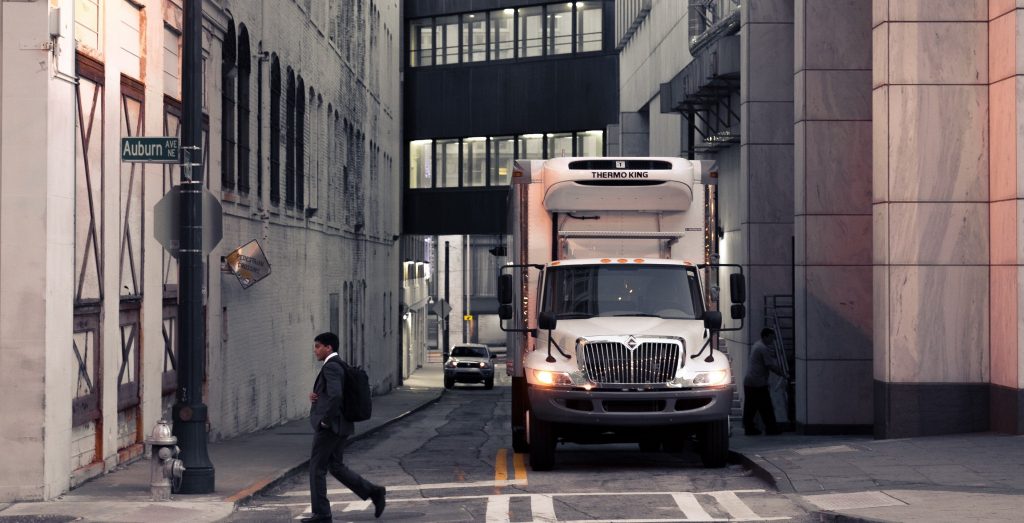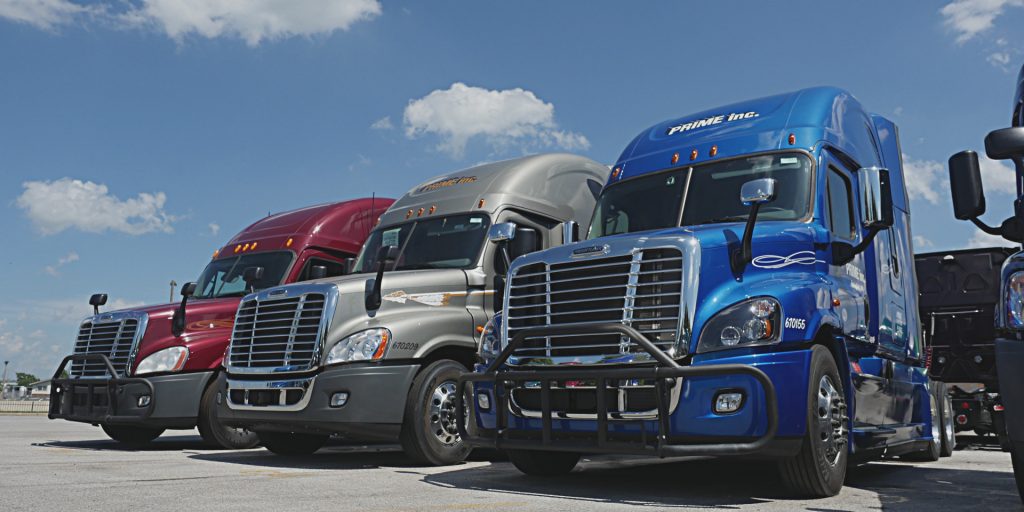A year of important court rulings and the adoption of new laws that challenge cornerstones of the trucking industry – such as its reliance on independent contractors and arbitration – have left businesses uncertain about labor relations.
New state laws and more court rulings are expected in the year ahead as companies, drivers and the courts hash out the rights of workers in the transportation industry.
“You’ve got a lot of different cases moving in a lot of different directions,” said Gregory M. Feary, a transportation attorney at Scopelitis, Garvin, Light, Hanson and Feary in Indianapolis, Ind.
No clear path has emerged for trucking companies, he said.
“There’s just not been enough decisions lined up to really solidly forecast across all jurisdictions and across all laws how this will play out,” Feary said.
Enjoying our insights?
Subscribe to our newsletter to keep up with the latest industry trends and developments.
Stay InformedFor now, here is a look at five of the most important recent transportation rulings and new laws, as well as what’s next for each:
California Independent Contractor Status
The Case:
Dynamex Operations West Inc. versus Superior Court
The Ruling:
The California Supreme Court in the Dynamex class action lawsuit adopted an ABC test that basically assumes almost all workers are employees and eligible for the wide protections of California wage laws including overtime pay, meal breaks and minimum-wage guarantees.
The ABC test requires hiring entities to establish:
(A) that the worker is free from the control and direction of the hiring entity in connection with the performance of the work, both under the contract for the performance of the work and in fact.
(B) that the worker performs work that is outside the usual course of the hiring entity’s business.
(C) that the worker is customarily engaged in an independently established trade, occupation, or business of the same nature as the work performed.
Part B of the test is key. It says a worker has to be performing work outside the usual course of business of the hiring company to qualify as an independent contractor. That seems to rule out owner-operator truck drivers because they typically do the same type of work as their client companies.
What’s next?
Trucking companies took some comfort from an October decision by a California appeals court in Garcia versus Border Transportation Group. The court said, “There is no reason to apply the ABC test categorically to every working relationship.” It said the long-used and more flexible Borello test still applied to non-wage disputes such as wrongful-termination claims.
Related: Ruling Expected on California Move to Dismiss Dynamex-Related Case
The California trucking industry has sued to prevent enforcement of the Dynamex ruling, and two competing bills have been introduced by California lawmakers to address it. AB-5 would make the ruling into state law. AB-71 would prevent the ruling’s ABC test from being used.
Shippers’ Liability
The Issue:
Since 2011, California’s labor office has received more than 1,000 port trucking wage claims and issued 448 decisions in favor of truck drivers. It found that more than $50 mil-lion in wages was owed to drivers. But many companies failed to pay.
The New Law:
Former California Gov. Jerry Brown signed Senate Bill 1402 mandating customer liability for labor violations at port trucking companies. Effective Jan. 1, the law says that customers of port trucking companies will be “jointly liable for future labor law violations by port drayage motor carriers who they engage” when customers know about the trucking company’s record of not paying judgments for labor law violations.
The new law is meant to “exert pressure across the supply chain to protect drayage drivers from further exploitation,” according to the bill. Customer businesses with fewer than 25 workers are exempt.
What’s next?
Each month the California labor commissioner will post a list of port trucking companies with unsatisfied final court judgments, tax assessments or tax liens. The first list was published online in January.
Trucker Sleeper Pay
The Case:
Browne versus P.A.M. Transportation Inc.
The Ruling:
Federal labor rules, not federal safety rules, should be used to tally for how many hours of work an employee truck driver must be paid.
Trucking companies owe employee truck drivers pay for every hour spent on the job, including the sleeping breaks required by law, said the U.S. District Court in Fayetteville, Ark. The ruling came in an ongoing wage lawsuit against P.A.M. Transportation Inc.
“The Department of Transportation regulations aim to make our roads safe, while the Department of Labor regulations aim to provide workers adequate compensation,” wrote U.S. District Court Judge Timothy Brooks in denying P.A.M.’s motion for partial dismissal of the lawsuit claims. “This court sees nothing inconsistent or inharmonious about that state of affairs.”
He cited DOL rules that require drivers be paid for at least 16 hours in a 24-hour period. P.A.M. and other motor carriers argued that driver pay should be based on DOT rules that exclude time spent resting in a sleeper berth from on-duty time.
It’s a critical point for the trucking industry, according to one labor market expert.
“That is going to add up to a lot of money and start to change the cost calculus around using independent contractors,” said Steve Viscelli, author and lecturer at the University of Pennsylvania.
What’s next?
The issue may not be settled. Although a similar pro-worker ruling came in December during pretrial motions in Julian versus Swift Transportation Co. , two other courts have held that a driver couldn’t count sleeper berth time as on-duty, paid time, attorneys said.

California Paid Break Rules
The Case:
The American Trucking Associations petitioned the Federal Motor Carrier Safety Administration to pre-empt California rules for meal breaks and rest periods.
The decision: The FMCSA granted the petition and agreed that its rules pre-empt state rules that require employers to give their employees meal periods and rest breaks during the work day. The exemption applies to commercial motor vehicle drivers, who fall under the agency’s hours-of-service regulations. The agency said it has pre-emption authority because its rules govern commercial motor vehicle safety.
What’s next?
On Feb. 6, California’s labor commissioner filed a petition with the 9th U.S. Circuit Court of Appeals. The state asked the court to review and reverse the federal agency’s decision.
 Trucker Arbitration
Trucker Arbitration
The Case:
The Ruling:
The U.S. Supreme Court ruled Jan. 15 that independent contractor truck drivers fall under the Federal Arbitration Act exclusion for transportation workers.
That means owner-operators, as independent contractor truck drivers, can’t be forced to use arbitration, despite being required to by hiring companies as part of their work contracts.
The unanimous ruling clarified what type of worker the 1925 act applies to. And it opened the door for truck drivers, both employees and independent contractors, to potentially take their complaints directly to court.
Arbitration agreements typically mandate that all disputes be solved by an arbitrator and not in court, including the question of whether the dispute legally belongs in court. Employers typically love them because they avoid court cost and juries. Workers often dislike them because they limit how they can pursue their disputes.
What’s next?
Many states already have their own pro-arbitration laws in place. Transportation attorneys expect more challenges to these state arbitration laws after the New Prime ruling.
The trucking industry is keeping its eye on several proposed new laws and pending court cases around the country concerning worker wages and misclassification. It’s likely to be a long, bumpy ride.
“This is not going to be one or two court decisions and then it’s over,” the University of Pennsylvania’s Viscelli said. “It’s going to be years and years of litigation before a new model is really firmly established or the current model is affirmed to be legal.”
(from Trucks)






 Trucker Arbitration
Trucker Arbitration














